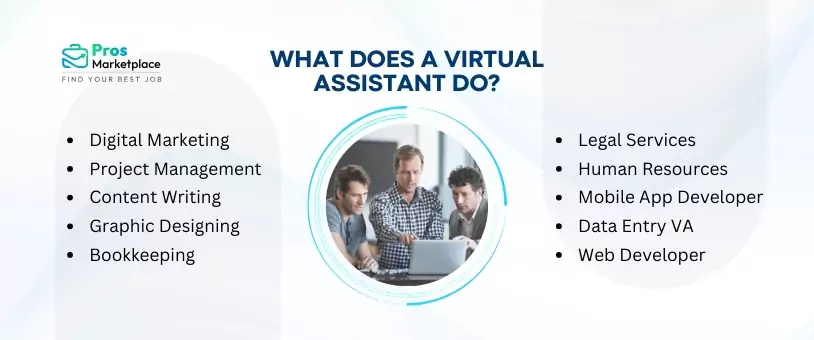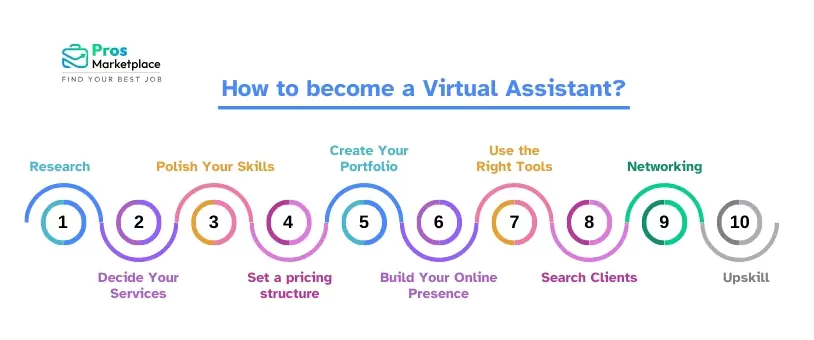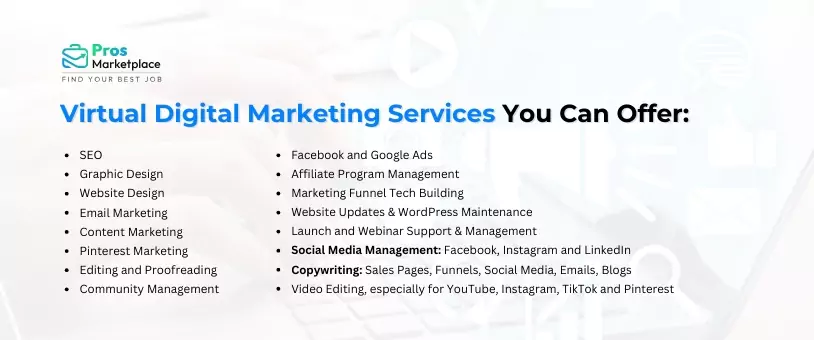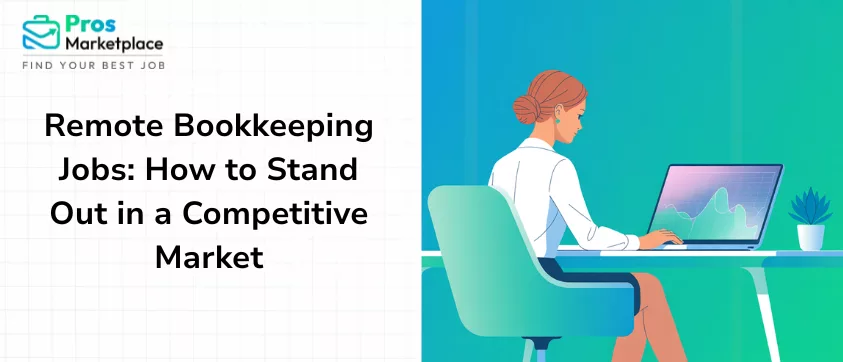With the expansion of remote workforces, the demand for virtual assistants is rising. These independent professionals are attracted to the flexibility of working from any location while acquiring diverse experiences across various industries and honing an array of skills such as social media management and content creation.
The career paths for virtual assistants are diverse, with opportunities to progress into roles like account executives or marketing managers. Starting as an assistant provides valuable insights into company operations and fosters adaptability within a corporate setting. With accumulated experience and the acquisition of new skills, transitioning from assisting to management becomes a plausible career trajectory.
Questions about required skills and responsibilities often arise for individuals aspiring to become virtual assistants. Crafting a comprehensive resume and portfolio necessitates highlighting essential virtual assistant skills to secure rewarding employment opportunities.

What Does a Virtual Assistant Do?
A virtual assistant (VA) performs various administrative, creative, or business tasks on behalf of entrepreneurs, solopreneurs, or well-known companies and organizations. While some Virtual Assistants may choose to work full-time for a large client, many will choose a freelance or contract model working for multiple clients simultaneously, often resulting in employment equal to or greater than full-time employment. One of the advantages of being a Virtual Assistant is the ability to set your schedule, although it is important to meet each client’s needs and schedule.
Also Read: How to Get Clients as a Virtual Assistant?
Becoming a Virtual Assistant generally does not require any training or equipment other than management skills, business knowledge, and online knowledge. Over time, Virtual Assistants have the opportunity to specialize in specific areas and expand their practice to meet the needs of valued clients. Virtual Assistant earning potential depends on factors such as skill level, depth of expertise, and whether you work independently or for a VA company. Entry-level virtual assistants the company hires may only earn $10 to $12 per hour, which may not be enough to create a source of income. However, self-employed VAs have the flexibility to charge a starting rate of $20 per hour and can gradually increase their rates as they develop skills or needs.

Steps to Become a Successful Virtual Assistant
- Research
- Decide Your Services
- Polish Your Skills:
- Set a Pricing Structure
- Create Your Portfolio
- Build Your Online Presence
- Use the Right Tools
- Search clients
- Networking
- Upskill
Starting a career as a virtual assistant (VA) offers a flexible and rewarding opportunity for individuals seeking independence and growth from work. However, becoming a successful Virtual Assistant requires careful planning and execution. In this guide, we explain ten essential steps that will help virtual assistants gain a foothold in the business and succeed in the competitive market. Every step is critical to building a sustainable business and a successful VA, from identifying target customers to acquiring the skills necessary to stay ahead of the market. By following these steps and continuing to invest in professional development, virtual assistants can unlock more opportunities and begin a successful career in the virtual assistant field.
Research
Before starting your own virtual assistant business, good research is essential to ensure success.
Start by deciding whether you plan to work full-time or part-time, determining the flexibility you need to meet different business needs. Research the type of business to hire a virtual assistant – Do you rely on local businesses or want to work on a small scale? Weigh the pros and cons of working solely through an online platform versus direct customer service.
Visit the virtual assistant job posting to understand the opportunities available and the various tasks involved. This search will help you determine your preference for analytics and skills in the virtual assistant world. With good research, you will equip yourself with the information you need to make informed decisions and build a solid foundation for your virtual assistant career.
Decide Your Services
The advice for new providers is to fulfill the role of virtual assistant, allowing them to immerse themselves in the world of virtual assistants and discover their strengths, interests, and centers of development.
Starting a business often requires saying yes to time and keeping services in-house rather than outsourcing to other contractors. This way people gain good knowledge and insight while learning on the job.
New service providers need to understand that they do not have to have everything needed from the beginning. The online environment is constantly changing, and projects, policies, and best practices change every day. It is important to embrace the fluidity of this environment and be open to learning.
Although they can create unique packages and services, it’s great for new service providers to start by offering a combination of digital marketing and management services. As they gain experience and insight, they can improve their products to meet their customers’ needs.
Polish Your Skills
Gaining experience is equally important in building a virtual assistant career. Consider starting with an entry-level position in your field of expertise, whether rural or on-site, or taking on short-term freelance projects to expand your portfolio knowledge. Don’t forget to collect testimonials and testimonials from satisfied customers to demonstrate your talent.
Consider your skills and experience to better understand customers and their needs. By customizing your services to meet these needs, you can position yourself as an asset to businesses seeking virtual services.
Set a Pricing Structure
Setting the right price for your virtual assistant is crucial to establishing your value in the market. While competitive pricing research can provide insight into business patterns, using time-tracking software like Clockify can provide more accurate estimates for different types of projects. The software also helps differentiate between billable time, which includes tasks directly related to customer service, and non-billable time devoted to tasks such as development work. By tracking time in both groups, you can gain important insights that can inform your pricing strategy and ensure that your services reflect the reality of your benefits management.
Consider two important things:
- the time required to complete the task and
- the quality of the final result (based on your skills)
Create Your Portfolio
Establishing credentials as a virtual assistant is key to building trust and attracting more clients. As you gain experience in this field, you should actively seek feedback from customers and collect information that demonstrates your achievements and capabilities.
Start by asking your customers for feedback on the services you provide. Good references and reviews come in handy as validation of your skills and credibility. Also ask the client if you can share specific examples of your work, such as completed projects, successful competitions, or other results of your efforts.
Your resume should include examples that show you have been effective in a variety of roles related to virtual services. For example, you can showcase the portfolio you’ve created, the social media you manage, or the administrative tasks you do well. Remember to anonymize sensitive information and respect client privacy when sharing samples of your work.
Having a strong brand not only helps potential customers understand the value you can add to their business but also serves you as a loyal, highly trusted, and reliable customer. Your reliable virtual assistant. As you continue to build your portfolio with positive reviews and examples of your work, you can attract more clients and earn higher salaries in your virtual assistance business.
Build Your Online Presence
Visibility is paramount in the virtual assistant industry, especially once you’ve defined your services and established a pricing model. At this stage, your focus shifts to advertising, acquiring clients, gaining experience, and repeating the process. Here are some actionable steps you can take to enhance your visibility:
Firstly, consider joining professional platforms tailored to virtual assistants, where potential clients actively seek assistance. Leveraging word of mouth, whether through direct conversations or online interactions, can also be highly effective in spreading awareness of your services.
An active presence on social media platforms needs to regularly post content related to your expertise and engage with your audience. This not only showcases your skills but also helps in building credibility and attracting potential clients.
Lastly, make use of your professional connections by providing relevant examples that demonstrate your expertise, creativity, organization, and time management skills. By offering valuable insights and showcasing your capabilities, you can establish meaningful engagement with your network, ultimately leading to more opportunities in the virtual assistant landscape.
Use the Right Tools
To accelerate business growth as a virtual assistant, leveraging available technology is essential. By harnessing your skills and complementing them with the right software, you can optimize efficiency and productivity. Given that communication and documentation primarily occur online, utilizing appropriate tools not only facilitates seamless collaboration but also provides evidence of work for invoicing purposes.
These tools will help you streamline and organize workflows, enhancing overall effectiveness. Some of the tools every virtual assistant should incorporate into their work include:
- Communication tools such as email and team chat apps
- Project and task management tools
- Time tracker
- Productivity management tools
- Specialized software tailored to their specific role, such as accounting software.
By integrating these tools into your workflow, you can maximize your effectiveness as a virtual assistant and drive business growth.
Search For your clients
Finding a way to do business as a virtual assistant will vary depending on your target customers and their preferences. Some virtual assistants prefer to browse job listings on job-specific websites where they post cover letters and resumes online, similar to a job search.
Others choose to create profiles on freelancing platforms like Upwork or TaskRabbit, where they present their skills, experience, and ratings from previous clients. These platforms allow potential customers seeking virtual services to connect directly with virtual assistants whose profiles match their needs.
Social media platforms are the perfect platforms to connect with potential customers. For those who want to work with local businesses, use platforms such as LinkedIn and Pinterest. Virtual assistants can build relationships and demonstrate their expertise by following and interacting with potential customers’ posts. Additionally, joining relevant Facebook groups for local businesses provides a way to provide help and make a profit without having to run the business yourself. Building relationships through social media can lead to organic referrals and long-term customer relationships.
Networking
Once you acquire several customers and gain a competitive advantage, it is important to maintain the best customer service for your existing customers. But it’s equally important to promote your organization professionally by working on relationships and interacting with other small business owners. Posting regular updates and sharing valuable information can help you maintain brand awareness and improve your skills as a virtual assistant.
Also, spend time connecting with local small business owners through networking or networking. Always mentioning your role as a virtual assistant during these interactions can lead to referrals or collaborations. Taking the time to build genuine relationships and be as helpful as possible is key to cultivating trust and goodwill within your network.
Finally, building relationships with friends and potential customers is crucial to ensuring your business is successful in this field for the long term. People are more likely to hire people they like and trust, making relationship-building an important part of managing the best work experience.
Upskill
Developing skills is essential to be successful and competitive in the virtual economy. It’s not just about gaining your skills to justify a higher price, it’s also about staying ahead of the rest in a saturated market. As more and more people join the Virtual Assistant industry, having the skills to get the job is crucial.
Also ensure the digital status of the job, competition beyond local borders, virtual assistants from different countries competing for the The fact, the number of people hiring virtual assistants from outside organizations has increased, reflecting global competition in the industry.
The skills needed by virtual assistants are constantly evolving. Currently, services such as social media management, email marketing, and project management are in high demand. However, these trends can change rapidly; This underscores the importance of mastering the expertise customers look for in virtual assistants.
To remain competitive, it is important to monitor business continuity and progress in areas that align with your interests and advantages. By being flexible and responding to changing needs, you can position yourself as an asset in the dynamic virtual assistant market.

How Much Does a Virtual Assistant Earn?
The average hourly wage for a virtual assistant can vary from $26.73 to $100 per hour for their services.
Although a virtual assistant’s income varies and is affected by many factors. One of the main determinants of income is the industry and niche in which the virtual assistant works. Virtual Assistant charges higher for specialized niches that need specialized skills and expertise. For example, a virtual assistant working for digital marketing, graphic design, or administrative services.
While customers with larger budgets or in high-demand businesses may be willing to pay more for high-end virtual services, conversely, small business services or startups may involve more clients, which can affect how much a virtual assistant can charge.
There is no fixed price. With the money a virtual assistant can make, the income potential can be huge, especially for those who have the skills, work as freelancers, and provide valuable customer service. By positioning themselves in the market, constantly updating their skills, and providing exceptional services, virtual assistants can create profitable opportunities and grow in large businesses.
Conclusion:
The virtual services industry requires more than providing simple service management. Skill development is essential to be successful in this competition. As the demand for virtual assistants increases and the market continues to grow, it’s important to stay ahead of the curve by working in in-demand roles such as management, excellent communications, email marketing, and project management. Additionally, as global competition intensifies, virtual assistants need to remain flexible and responsive to market changes. By focusing on honing skills, staying on top of clients’ needs, and developing genuine connections within their networks, virtual assistants can create a successful and rewarding career in this dynamic field.





